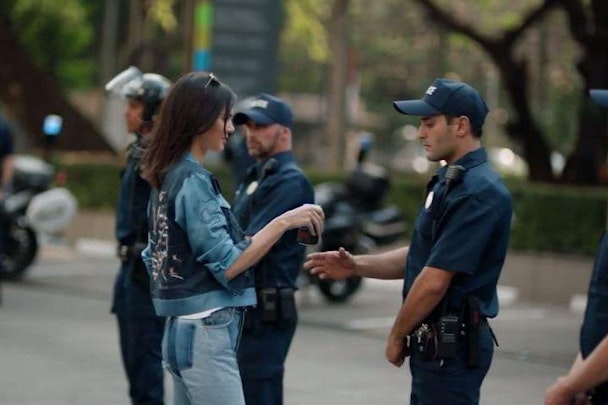What is the role of brands in tackling social issues?
Recently, there’s been a lot of discussion about the roles brands can (and should) play in political, legal, environmental and social matters. Now the dust is settling on the campaigns that have caused a stir over the last few months, it’s important to reflect on what have we learnt…

1. Be cautious when capitalising on societal level shifts and trends
Brands are always striving to be culturally relevant, and are always on the lookout for societal-level trends that can be reflected (or better still, capitalised on) in advertising.
Over the years, some brands have managed to do this well: an example is Dove’s campaign for real beauty. In the early noughties, Dove spotted a societal-level issue – that only 4% of women considered themselves beautiful – and as such, decided to make it its mission “to create a world where beauty is a source of confidence and not anxiety”.
From then on, Dove has developed meaningful campaigns that work towards this goal while also selling products – each campaign with its own insight. Dove’s ‘onslaught’ campaign for example, was based on the insight that the ‘internalisation of the thin ideal’ can occur as early as three years old, and so Dove helped by providing a solution, and encouraged parents to use their online resources to initiate conversations with their children.
In contrast, Pepsi’s ad is a perfect example of an FMCG brand that has simply jumped on a ‘cultural bandwagon’ to have a share of voice, without using insight to help root their product or purpose in the issue. Although, arguably, its aim was to demonstrate those from all walks of life coming together – an on-the-surface good-hearted sentiment – what it did was over-simplify the inequalities that many people across the world feel strongly about and failed to offer a real solution.
Consequently, Dove’s campaigns are authentic, and Pepsi appears as a cultural poseur.
2. Be vigilant when playing on sensitive emotions
Over the last few years we have seen brands work towards owning an emotion: campaigns that spring to mind being Coca Cola’s ‘open happiness’ and ‘taste the feeling’ or Cadbury’s ‘free the joy’ and ‘tastes like this feels’. Although these emotion-based approaches have led to engaging and effective creative work, there now seems to be an infiltration of brands across various categories, all fighting to own the same or similar territories.
The recent McDonald’s ad took the emotion theme to a new level. The ad portrayed a bereaved son talking about his dad with his mother, where it was revealed that a Filet-o-Fish was the only thing they had in common. The casting and overall execution was tasteful, and acknowledging the real-life issue was brave and somewhat commendable, but suggesting that McDonald’s products played any sort of part in helping a boy suffering from bereavement? That was disastrous. The McDonald’s ad evoked huge negative emotional responses, and left people feeling shocked, sad and empty.
The use of emotions can be hugely beneficial for brands. However, when encroaching on sensitive emotions, brands need to have meaningful reasons for evoking such responses and then provide help and support for their audience should they need it.
3. Brands should stand up for what they believe in, only if it’s relevant and credible
Finally, it’s time to a reiterate a point that we’ve discussed before (for more on brand activism, see here).
Most brands are aware of the concept of the ‘noble edge effect’, where research shows that corporate social goodwill can elevate a company’s profits by improving consumers’ perceptions of its products. As such, brands are developing activist stances.
Heineken's recent social experiment touched on activism, by tackling polarising views on transgender people, politics and the environment. The ad provoked varying reactions: some accepted that the beer brand was trying to act as the facilitator of conversations to help unite people, given the range of issues in the world right now. However, some took offence, suggesting that the issues Heineken presented were not portrayed appropriately.
Despite a few getting it wrong, it shouldn’t be that brands avoid taking activist stances; when done well, it can be effective for both commercial and societal benefit. You just need to look at brands such as Ben & Jerry’s and Patagonia, and campaigns such as Always’ ‘Like a girl’ and Stella Artois’ ‘Buy a lady a drink’.
Overall, the past few months have taught us that consumers want brands to have strong and consistent ideologies, and that brands need be credible, relevant and offer real solutions to the social issues they decide to champion. Now’s the time for us all to learn from others’ mistakes and instead, get it right.
Jane Asscher is the chief executive and founding partner at 23red
